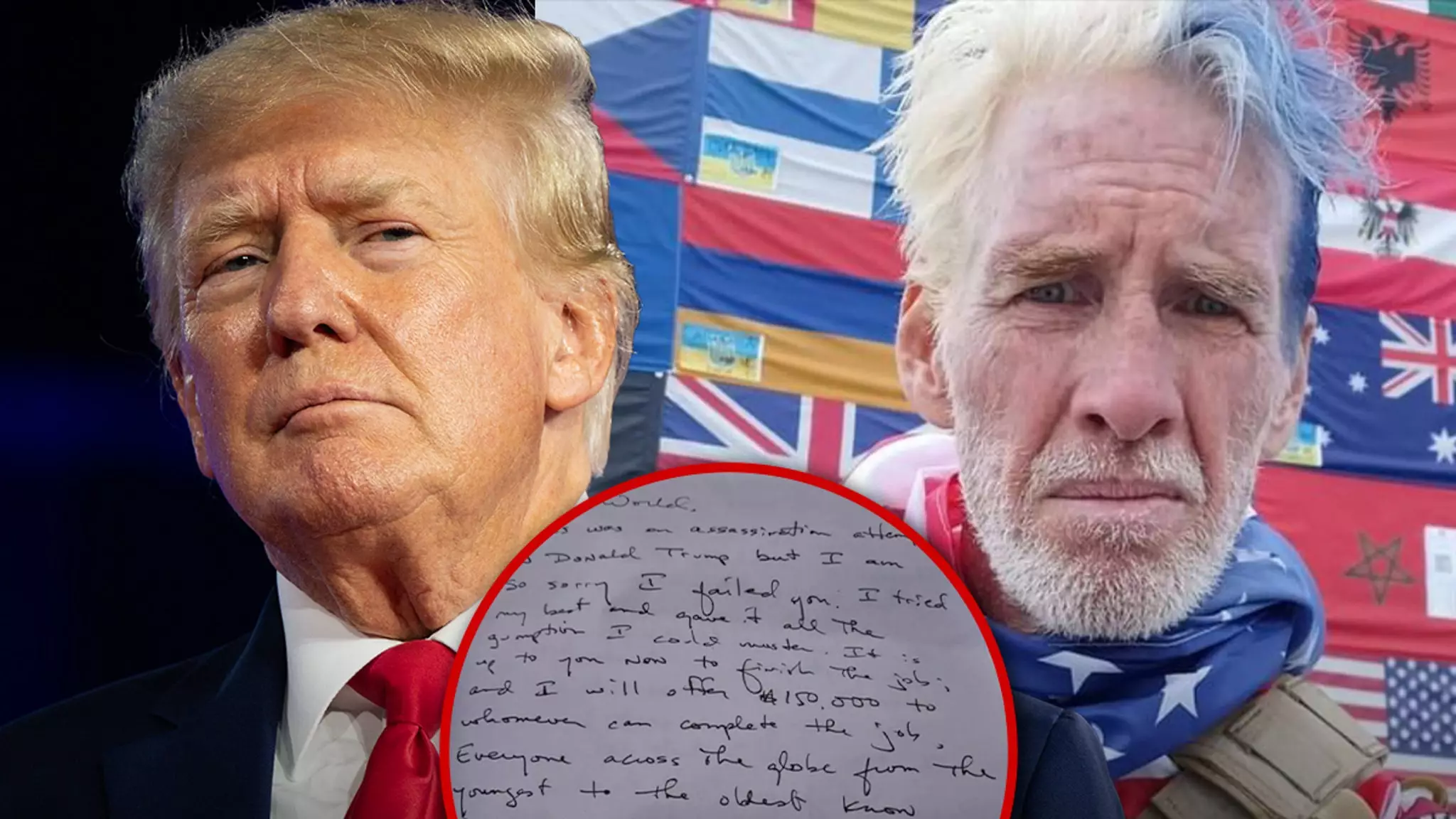The recent case involving Ryan Wesley Routh has sent shockwaves throughout the nation, highlighting the dark fringes of political discourse and the potential for violence that accompanies it. Routh, foundationally accused of attempting to assassinate former President Donald Trump, reportedly articulated his lethal intentions through a letter that has raised serious concerns regarding not just individual psyche but also the fragile state of political tensions in the country today. The letter, revealed by the Justice Department, paints a troubling picture of a man consumed by radical thoughts and willing to act upon them.
The Alarming Contents of the Letter
Federal prosecutors disclosed that the note penned by Routh not only detailed his intentions to assassinate Trump but also invited others to undertake such efforts, featuring a shocking offer of $150,000 reward for anyone who would carry out the act. This alarming solicitation for violence reflects an unsettling trend in modern political landscapes, where extreme actions are endorsed by a fringy minority, revealing a dangerous undercurrent in the collective consciousness. His declaration of failure—”I failed you”—underscores a sense of desperation and delusion that tends to justify such heinous intentions.
Context and Background of the Incident
Routh’s actions must be contextualized within an environment that has increasingly polarized individuals, fostering animosity and radicalization. Left behind in a box filled with ammunition and a metal pipe, the letter reveals stark warnings not just about a singular individual, but about the societal ramifications of inciting violence against political figures. The troubling realization that such thoughts can spiral into serious plots forces society to engage in a nuanced discussion about free speech and the boundaries of political expression.
The Justice Department’s investigation unveiled an array of chilling discoveries, including a handwritten list found in Routh’s car outlining dates and events where Trump was scheduled to appear, as well as multiple cell phones containing suspicious searches. This layer of detail adds gravitas to the investigation, pushing for a re-evaluation of the measures taken to secure public figures in politically charged atmospheres. Routh’s actions serve as a grim reminder of the lengths to which individuals might go when influenced by extremist ideologies, forcing authorities to confront the robust implications these sentiments have for public safety.
Further complicating the narrative were the actions taken by the Secret Service during the incident when an AK-style rifle was spotted, indicating the high stakes involved in protecting political figures. Though Routh’s weapon was never fired, the mere possession of it, combined with his prior activities, necessitates an urgent reassessment of current security protocols. In a climate where rhetoric can quickly escalate to tangible threats, safeguarding leaders from potential assassins must become a paramount concern for law enforcement and relevant agencies.
Ultimately, the case of Ryan Wesley Routh is more than an isolated incident of a disgruntled individual; it is a clarion call for a cautious analysis of political dynamics in America. Normalizing violence—whether overtly through acts like Routh’s or insidiously through inflammatory rhetoric—marks a dangerous precedent. Society must grapple with the implications of such incidents and work collectively to counteract the forces that breed such hostility and division, ensuring that political discourse remains civil and constructive rather than a pathway to violence.


Leave a Reply